Didius Julianus (2)
Marcus Didius Severus Julianus (133?-193): Roman emperor, ruled for sixty-six days in 193.
Coup d'État
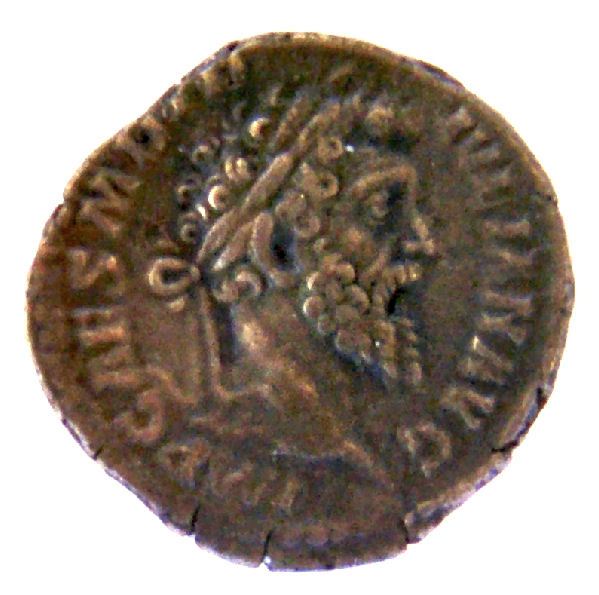
While Didius Julianus was in Bithyniae et Pontus and Africa, the emperor Commodus was becoming more autocratic in his manners. He was seen exercising with gladiators and wanted to be called "the Roman Hercules". Behavior of this kind was not unknown to the Romans, but it had not been witnessed for almost a century. Even worse was to come. In December 192, the emperor presented himself as a gladiator, fighting in the arena of the Colosseum. The senators started to feel threatened by their master. They thought that he had lost his mind and feared that he would one day attack them.
At that moment, a group of conspirators killed the emperor. What actually happened will probably never be known (conspiracies have the nasty habit of being secret affairs), but there is every reason to believe that the assassination was not an improvised action (as our sources state), but had been planned for some time. The date of the murder was carefully chosen: on New Year's day, soldiers did not carry weapons, and after a night of heavy drinking, they were disorganized. This was imperative for the murder to be successful, because the soldiers of the imperial guard were truly devoted to their emperor. Immediately, a rumor circulated that Commodus had had the intention to kill the consuls. Perhaps this was true, but it sounds as if the conspirators tried to cover up what they had planned all along.
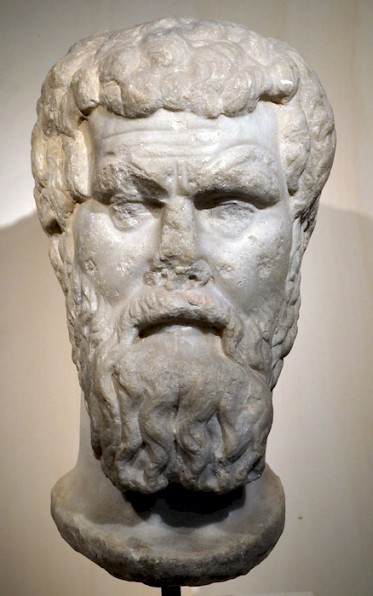
The new emperor was Pertinax, the man who had been Didius Julianus' colleague as consul in 175. The official story was that he was chosen only after the murder, but it is very likely that he was in fact one of the conspirators - something that he could never officially admit. However, it is remarkable that there were many people on key positions who were in one way or another related to Pertinax. For example, his friend Septimius Severus was now governor of Pannonia Superior, where he commanded three legions. No army group was closer to Rome than this one. Pertinax' coup d'état seems to have been well planned.
Unfortunately, the new ruler soon lost control of the situation. The soldiers of the imperial guard were missing Commodus and disliked the experienced general, who had promised them a large amount of money, but had been able to give them only half of it. The praetorian prefect Quintus Aemilius Laetus, who had been one of the conspirators but seems to have been disappointed in the man he had made emperor, did nothing to to appease them. It is not fully understood what made him change his mind, but perhaps he did not really know what went on in his soldier's minds.
On the twenty-eighth of March 193, eighty-six days only after the death of Commodus, a sedition broke out in the camp of the imperial guard. Laetus was unable to suppress it, and a group of soldiers burst into the imperial palace, where one of them killed their master. His head was separated from his body, placed on a lance, and shown to a mournful and indignant people, who lamented the sad fate of the old man.
Emperor
This murder had not been planned. The soldiers were not fighting for a particular pretender, they were just angry. Probably, when they entered the palace, they had no design to kill the man. It simply happened. And so, there was no successor to the throne. The situation would have been less complex if Pertinax had adopted a successor. But he had said that he wanted to do business on 21 April, the day on which Rome had been founded. If there had been a successor, the Senate and the soldiers who had not joined in this sudden outburst of violence, would have made this man emperor, and the murderers would have been punished.
Or did Pertinax appoint someone? Although the old emperor had a son, Publius, there was a persistent rumor that Didius Julianus had been the emperor's choice. The two men had much in common. They were both successful generals, they had been consul together, and had succeeded each other as prefects of the child-welfare system. It was said that only a few days before, Pertinax had said to some of his courtiers that he wanted Didius Julianus to be regarded with due respect, because he had been his colleague and would be his successor.
But there was another man who could claim the empire. It was the prefect of the city, Titus Flavius Sulpicianus. Officially, the prefect was in charge of Rome when the emperor was away, and it was not unreasonable that at this moment, he was claiming the throne. Moreover, he was Pertinax' father-in-law. He hurried to the barracks of the guard, and promised each of the soldiers 20,000 sesterces - eight yearly wages. (Marcus Aurelius had offered the same amount of money in 161.)
Now Didius Julianus arrived. He declared that he had been appointed, and shouted from the foot of the rampart that he offered the soldiers 25,000 sesterces. Immediately, he was let into the camp and proclaimed emperor. It was 28 March, the very day of the murder of Pertinax.
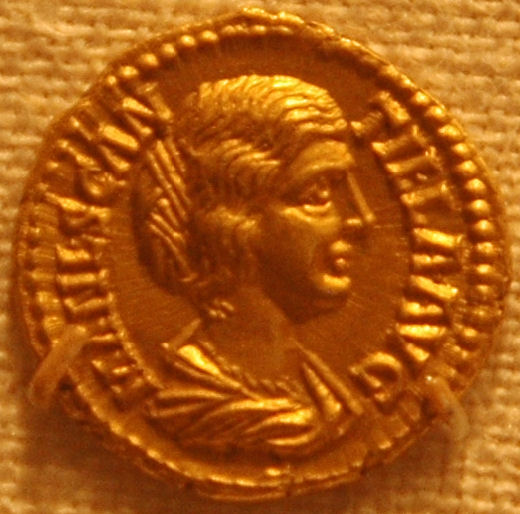
Never before had the empire been auctioned away, and the reign of Imperator Caesar Marcus Didius Severus Julianus Augustus was stained from the start, even though he pardoned Sulpicianus. People shouted that they wanted the governor of Syria, Pescennius Niger, to become their emperor. When Septimius Severus, the general of the Pannonian army, heard about the murder of Pertinax and the accession of the new emperor, he revolted, claiming that Pertinax had promised to make him his successor (9 April). Immediately, Severus marched on Rome with the First legion Adiutrix and the Fourteenth Gemina.
Other provinces learned later what had happened, and so it was mid-April that Pescennius Niger of Syria and the governor of Britannia, Decimus Clodius Albinus, assumed the imperial purple. It seems that they did not mobilize immediately, but waited to see which of the other candidates was victorious.
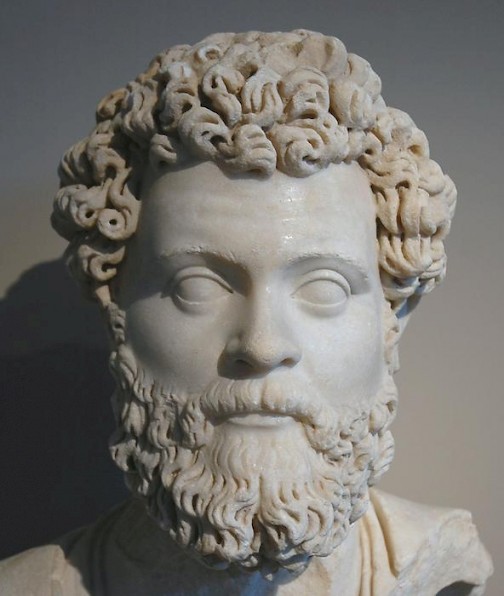
Meanwhile, Didius Julianus tried to rule. He saved the life of his former rival Sulpicianus, reorganized the imperial guard - Laetus was killed -, paid the soldiers of the guard 30,000 sesterces, and organized the defense of Italy against the amy of Severus. However, the people of Rome despised him, no matter what he did. He was insulted, and sometimes stones were thrown at the emperor, as if he had been responsible for the death of Pertinax.
Severus' armies approached Rome at the end of May, and it was obvious to the senators that the soldiers of the imperial guard were not going to fight for the man who had paid them so well. So, Didius Julianus was deserted by everyone and remained in the palace with only a few adherents. On the first day of June, the Senate revoked the imperial power and proclaimed Severus emperor. Next day, Didius Julianus was killed, after a reign of sixty-six days.
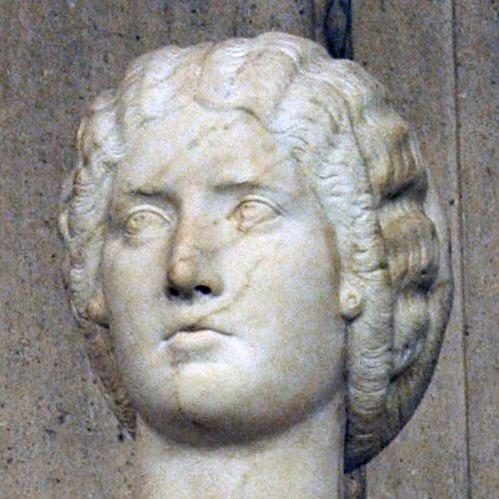
Severus entered the city on 9 June. He ordered the body of Didius Julianus to be given to his wife Manlia Scantilla and his daughter Didia Clara. They buried the former emperor near the fifth milestone on the Via Labicana. The Senate pronounced a damnatio memoriae.
Literature
- The text of the biography of Didius Julianus from the Historia Augusta can be found here in Latin and English.
- The reign of Julianus has also been treated in Cassius Dio's Roman History (Book 74)
- It is also described in Herodian's History of the Roman Empire (Book 2)